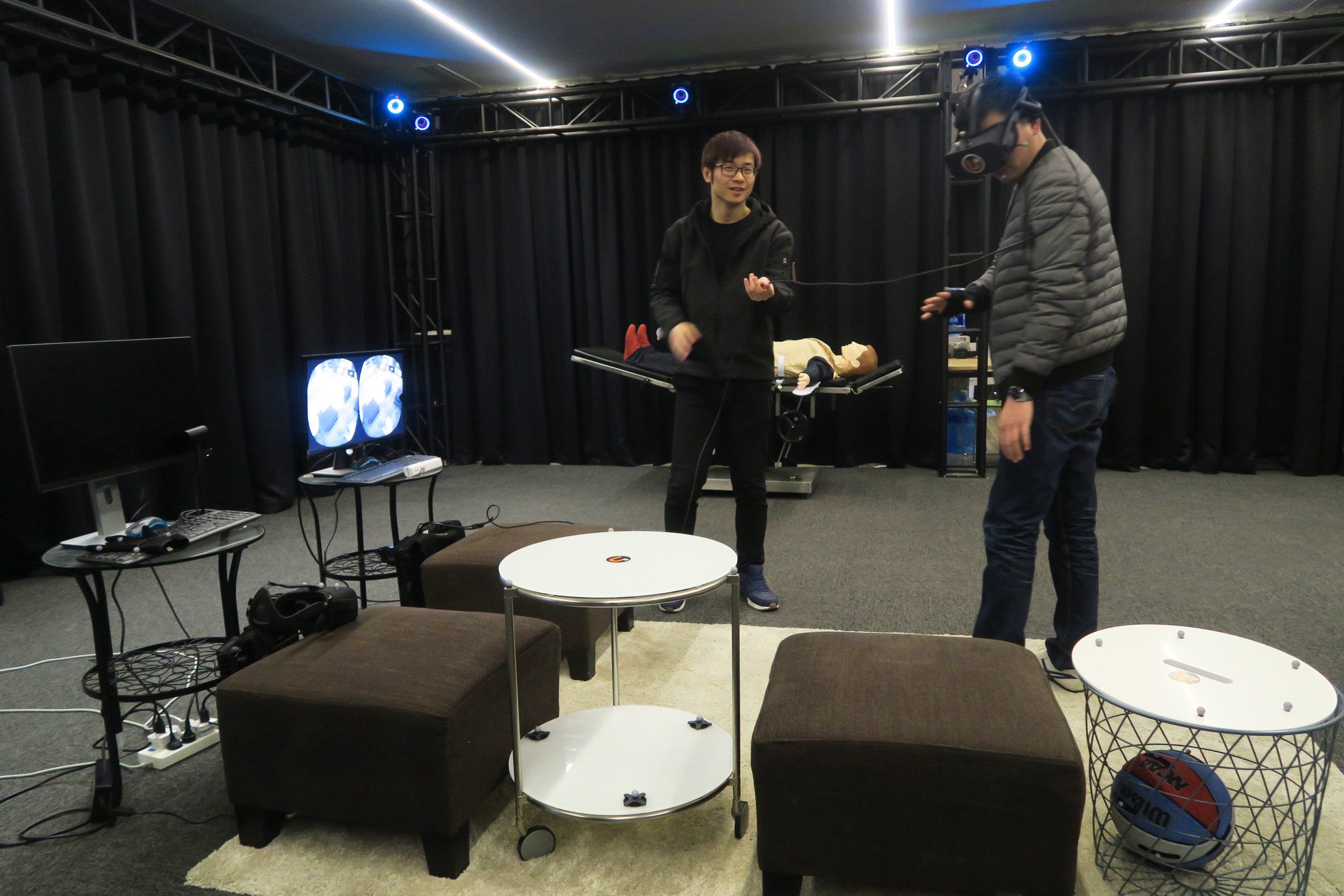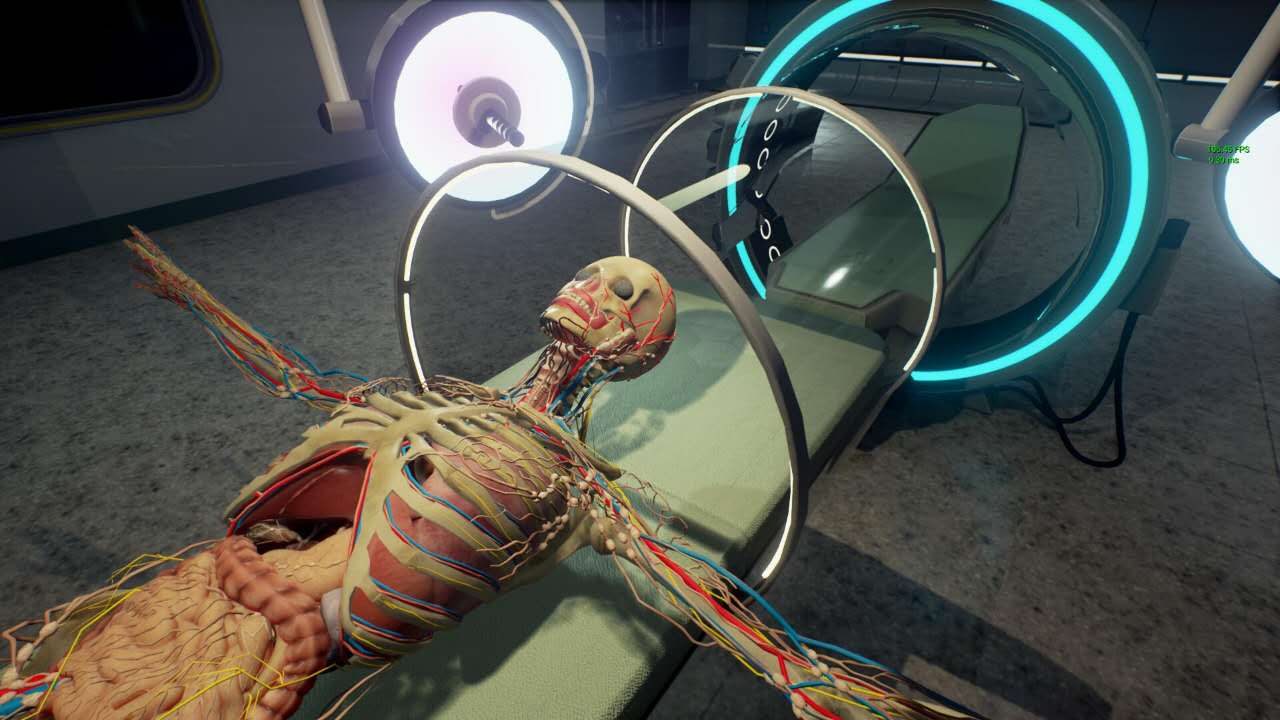
Photo credit: UltronVR.
I’m on a whirlwind tour of different realities: a sunlit living room, prehistoric Earth, a tomb filled with Terracotta Warriors. I’m not fooled by my surroundings – I know I’m in a studio – but when I stand up to get out of an Aston Martin, I instinctively crouch down to avoid hitting my head on the door.
“[Chinese companies] are good at making the interactive part […] but no incredible storytelling experience that makes you come back,” says Carlo Maria Rossi, chief creative officer at UltronVR. “This is the basic gap that we have.”
Though China boasted a US$300 million virtual reality market in 2016, a whopping 78 percent of investments went to hardware companies, according to market research firm Niko Partners. And thanks to the launch of Oculus Rift’s headset, many Chinese hardware startups, such as Baofeng Mojing, rushed to produce their own cheaper versions. Compelling VR content, on the other hand, is still few and far between.
The chair I sat on became the front seat of a car.
UltronVR wants to fill that gap by incorporating optical tracking technology into its VR content. Optical tracking is a type of motion capture that uses cameras and markers to determine the position and orientation of an object. That means that by sticking small, spherical markers onto physical objects, UltronVR can map them into virtual reality.
It sort of tricks your mind into thinking that your virtual environment – or at least parts of it – is real. The chair I sat on became the front seat of a car, and when I leaned over and picked up a basketball in VR, I could feel it.
Optical tracking also enables simple objects, like a glass cup, to take on a myriad of identities in VR, such as a cocktail, a steaming potion, or a cup of blood, says Carlo.

UltronVR’s studio, complete with optical tracking markers and cameras. Photo credit: Tech in Asia.
Currently, the Shanghai-based startup is using optical tracking technology from an undisclosed third-party company to create content for business clients, such as Aston Martin, Lexus, and Hilton. The requirements are pretty straightforward: wow users while showing off the brand’s product. In China, where VR kiosks and experience booths are a common fixture in shopping malls of major cities, companies see VR as a tool for customer engagement and brand awareness.
In the long term, however, UltronVR has its sights set on gaming.
“The future will be VR gaming, but we know gaming is not ready yet,” says Carlo. Though VR arcades have popped up around Shanghai, most users don’t return for a second time, he says. Though an estimated 35,000 arcades opened in China last year, less than half are still in operation.
Carlo also believes that VR hardware isn’t good enough either. The startup is using Unreal Engine 4 to create high-resolution 3D models for its content, but what ends up being rendered via HTC Vive or Oculus Rift isn’t as high quality, he says.

Studying the human body in virtual reality. Photo credit: UltronVR.
While UltronVR waits for the VR industry to mature, the company is focusing on other applications, such as branded content and education. For example, one of its products lets you examine and move different parts of the human body – a project for a VR education company with a focus in the medical industry. Another project lets you take apart a car engine. All of these give the startup the opportunity to polish its content creation skills and explore new ways to use motion capture in VR.
And, it pays the bills.
“We need to survive this year – there’s lots of competition,” says Carlo, laughing. Plus, working with brands – especially luxury brands – has pushed the company to create high quality content. He navigates through one of UltronVR’s demos, pointing out details with pride: ripples in the carpet, a silver stove-top espresso maker.
“We’re a Chinese company,” he says. “We need to convince them that we’re international.”
Founded in 2012 by Andy Zhao, UltronVR has currently raised one round of investment of an undisclosed amount.
This post This VR startup can turn your sofa into a Lamborghini appeared first on Tech in Asia.

















